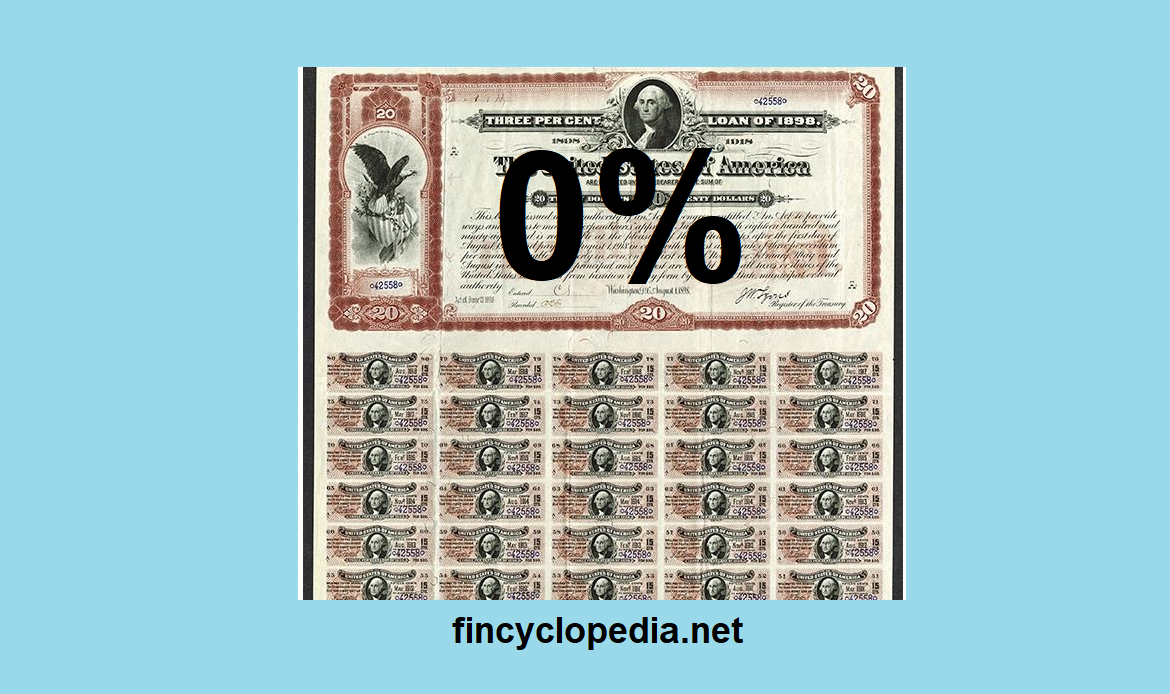A debt instrument that promises investors (holders/ buyers) a single fixed payment on a preset future date. In other words, this instrument pays no interest until maturity. At maturity date, the holder is entitled to receive its face value. The income it pays is confined to the discount at which it is originally sold, i.e., the difference between its face value and the price at which it is sold (the price is always less than the face value):
Discount = face value – sale price
Differently stated, a zero-coupon instrument pays interest as the difference between the amount borrowed (by the issuer) and the amount paid back (to the investor).
Examples of zero-coupon instruments include zero-coupon bonds, T-bills, commercial paper, etc.
This debt instrument is also known as a pure discount instrument.



